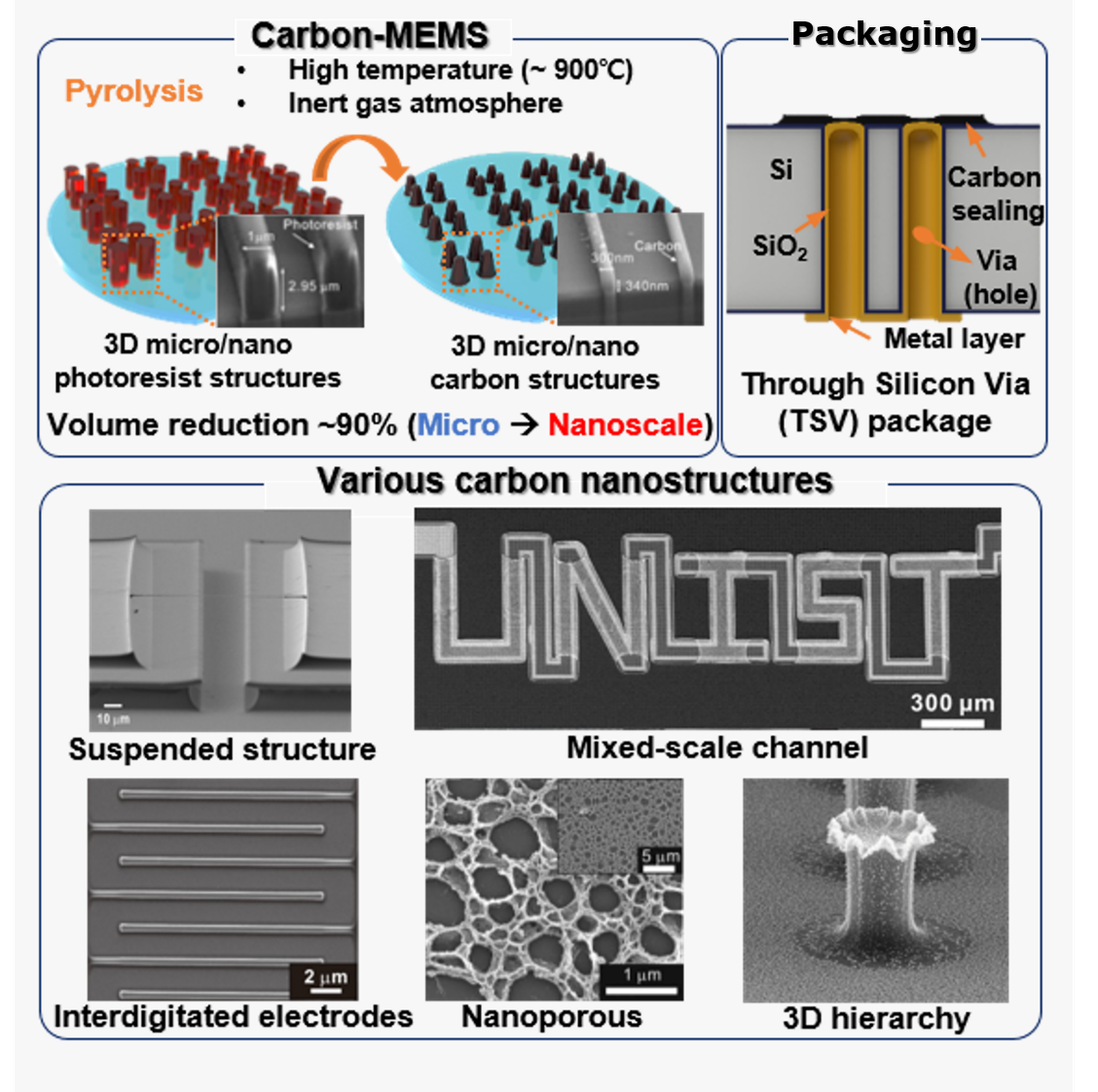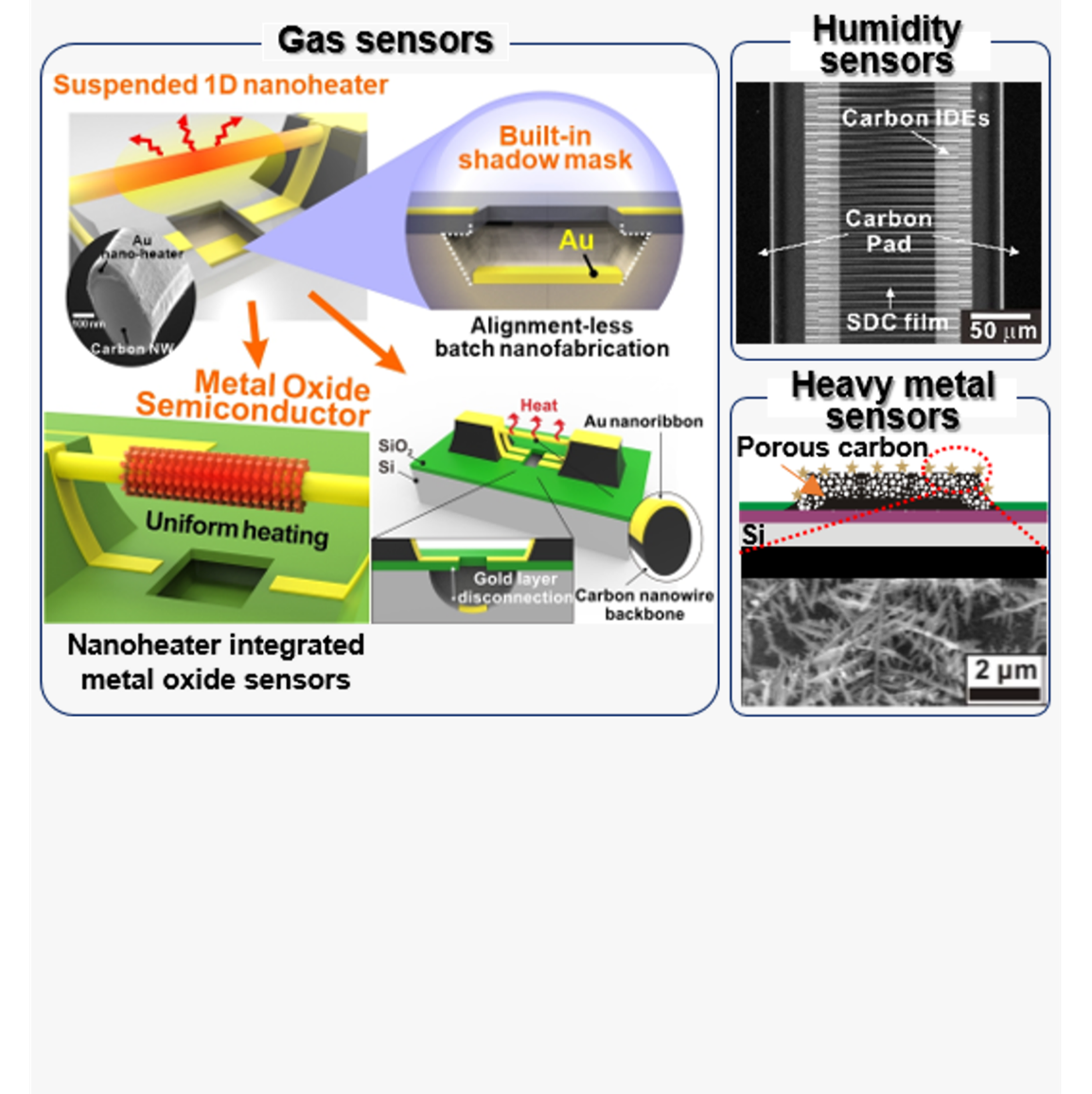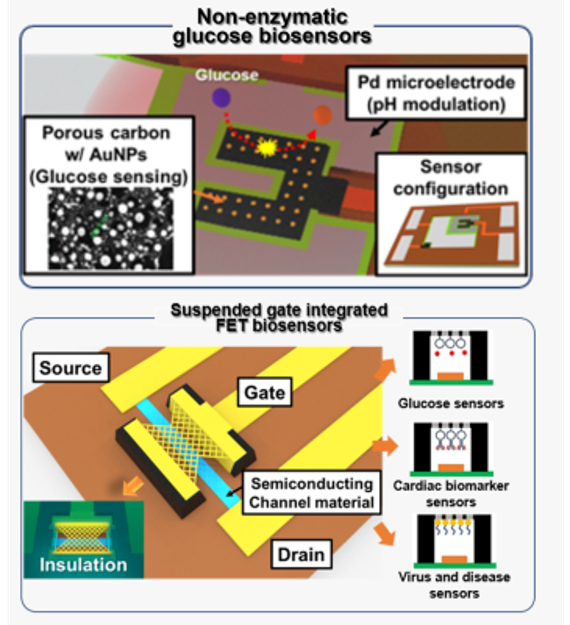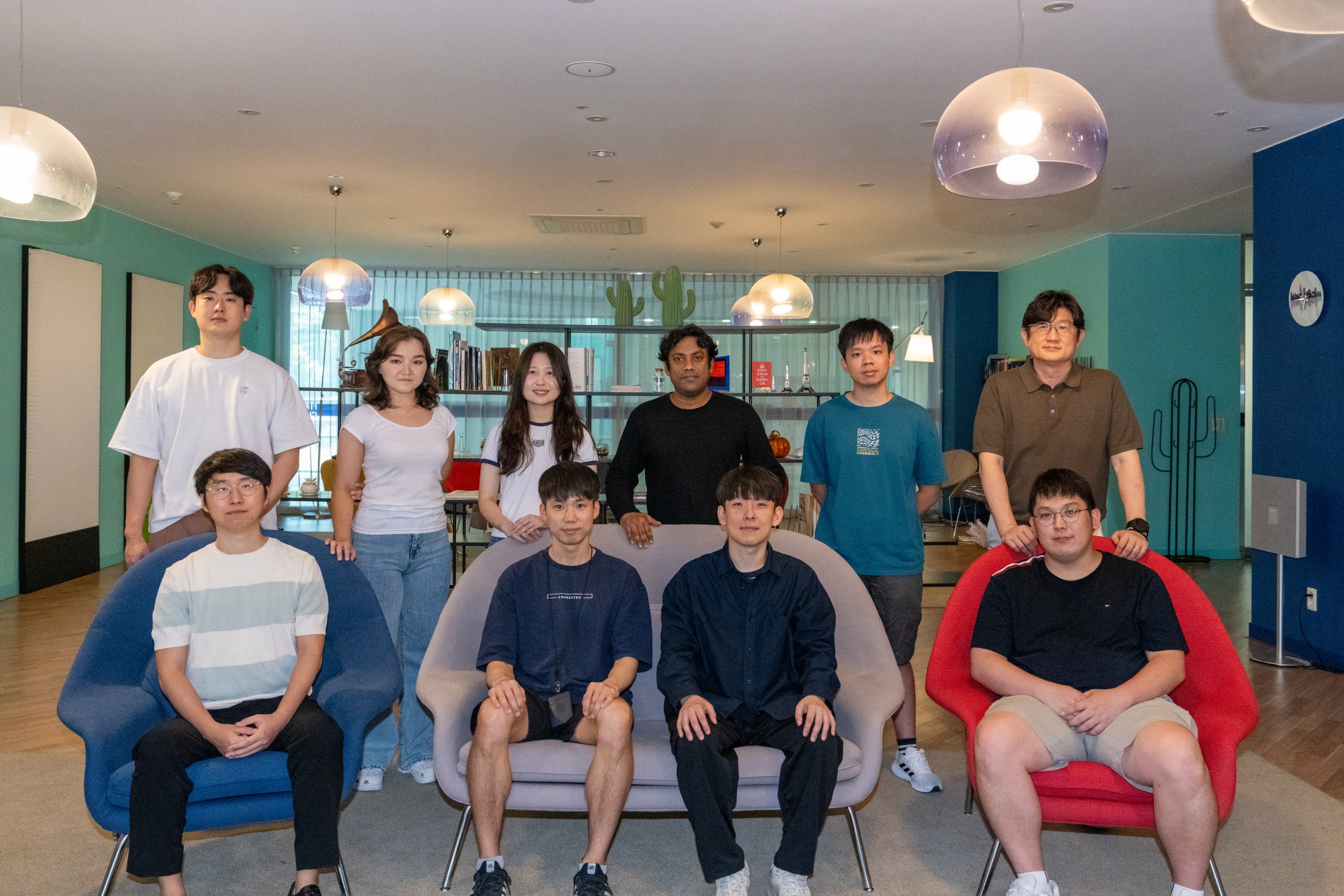Welcome to the MNIS (Micro / Nano Integrated Systems) lab!
The MNIS lab is dedicated to interdisciplinary research, bridging micro/nano fabrication with nanotechnology, biotechnology, and electrochemistry. Our lab conducts all necessary studies for developing novel micro/nanosystems, including modeling, design, fabrication, and testing. Lab members learn advanced microfabrication technologies used in the production of semiconductor and MEMS (microelectromechanical systems) devices and innovate their own novel devices.
A unique fabrication technique, known as C-MEMS (Carbon MEMS), is primarily utilized for device development. In C-MEMS, pre-patterned polymer structures are converted into carbon structures through pyrolysis, resulting in significant volume reduction. This reduction enables simple wafer-level fabrication of 1D carbon structures from micrometer-scale polymer structures. The material and geometric properties of pyrolyzed carbon, such as electrical and thermal conductivity, porosity, and topography, can be controlled by adjusting the polymer patterning and pyrolysis processes. Through the process optimization, the resulting carbon micro/nanostructures serves as device backbones or sensor electrodes, leading to the development of novel sensor devices.
Our research has led to the development of ultralow power gas sensors, highly selective and sensitive FET biosensors and electrochemical biosensors, fast-response temperature and humidity sensors, and nanofluidic devices. Moreover, we have developed a smart multiplex gas sensor (known as E-nose) based on a single sensor thorough machine learning. We also study sensor packaging technologies to facilitate the practical application of our developed devices.





